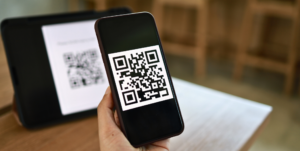As the holiday season approaches, many of us feel the pressure to manage our finances while trying to enjoy the festivities. The key to avoiding last-minute financial stress is starting early with your holiday savings. By planning ahead, you can spread out expenses, take advantage of early deals, and ensure that your holiday spending doesn’t put a strain on your budget. Starting early allows for a more thoughtful approach to gift-giving, travel plans, and holiday events, making the season more enjoyable and worry-free. Here are some tips to help you get started on saving for the holidays.
Key Takeaways
- Start saving early to avoid holiday financial stress.
- Use effective budgeting and high-interest accounts.
- Shop smartly to capture early deals and avoid debt.
Establishing Your Holiday Budget
Understanding Holiday Expenses
- To establish a budget, understanding all potential holiday expenses is key. Holiday spending might include gifts, decorations, travel, food, and special events.
- Making a list of expected expenses helps individuals understand where their money will go. For instance, allocate funds for each gift, estimate travel costs, and factor in any hosting expenses.
- Using a table or spreadsheet can make tracking costs easier and highlights overspending areas. Staying aware of potential extra costs helps in developing a more accurate budget.
Setting Realistic Financial Goals
Break the budget into manageable categories such as gifts, travel, and food. Assign a realistic spending limit to each category based on personal financial circumstances.
Consider starting a savings plan early in the year, setting aside a small amount monthly. Planning in advance helps reduce last-minute financial pressure, making it easier to stick to the budget.
Savings Strategies and Accounts
Starting With a Dedicated Savings Account
Opening a dedicated savings account can be a smart move for those looking to budget for holiday expenses. This account can act as a sinking fund, set aside specifically for anticipated costs like gifts and decorations.
A high-yield savings account offers a potential for greater returns with higher interest rates, making it possible to grow funds faster than in a standard account. Consider using a certificate of deposit (CD) for a more disciplined approach, which locks money away until a specified date. Each option can contribute to better-managed holiday finances.
Smart Shopping Tips for the Holiday Season
Making the Most of Sales and Discounts
Shoppers can find significant savings during holiday sales. Keeping an eye on Black Friday and Cyber Monday deals is a smart move. Retailers often offer deep discounts, especially before major shopping days. Using coupons and promo codes during checkout can further cut costs. Subscribing to store newsletters may offer exclusive deals. Another way to save is by signing up for retailer apps, which notify users of flash sales and special offers.
Bulk buying for non-perishable items or general-use gifts can also be a savvy shopping strategy. This not only cuts down costs but also reduces frequent shopping trips.
Leveraging Shopping Apps and Rewards Programs
Shopping apps are handy tools for finding real-time discounts and tracking price drops. Using apps like Honey or Rakuten can provide cashback or reveal coupons during checkout. Shoppers can install these tools on browsers or phones for instant updates.
Rewards programs can further enhance these savings. Many credit cards or retail chains offer points or cashback on purchases, which you can redeem for gift cards or discounts. Joining a retailer’s loyalty program often includes exclusive offers or birthday bonuses.
By combining apps and rewards, shopping becomes more rewarding both price-wise and in value addition.
Planning Gift Giving with Shopping Lists and Handmade Gifts
Creating a detailed shopping list helps stay focused and prevents impulse buys. Listing potential gift recipients with specific ideas ensures all are remembered without overwhelming the budget. Additionally, categorizing gifts by price or priority can help manage expenses.
Handmade gifts offer a personal touch and can be cost-efficient. DIY gifts like homemade candles or crafted photo albums showcase thoughtfulness. Planning these projects ahead gives shoppers time to gather supplies and enjoy the creative process.
Balancing purchased gifts with handmade ones widens the variety of presents while ensuring a personal feel.
Managing Holiday Expenses and Avoiding Debt
Strategizing to Avoid Holiday Debt
Planning ahead can make a big difference when it comes to holiday spending. Setting a clear budget in advance and listing all expected expenses, can help families keep track. Allocating funds for gifts, travel, and gatherings ensures that spending doesn’t spiral out of control.
Saving over time is effective as well. Start setting aside a small amount each month well before the holiday season to help avoid financial strain in December.
To further prevent debt, avoiding “buy-now, pay-later” options is wise. While they may seem convenient, these can accrue interest and lead to more payments over time.
Navigating Credit Card Use and Cash Back Options
Credit cards can be a useful tool during the holidays if used with caution. Consumers should track their spending and ensure they do not exceed their budget. Paying off the entire balance each month prevents accumulated interest.
Using credit cards that offer cash back or rewards points can aid in saving money on holiday purchases. Select cards that provide bonuses on shopping categories like groceries or gifts. This way, spending benefits from additional savings.
While using credit cards, it’s important to monitor any fees or interest rates. Those who keep an eye on these details can enjoy the benefits without falling into debt. Remember: smart use of credit ensures spending aligns with the expected budget.
Frequently Asked Questions
Some effective strategies include creating a dedicated savings account and making regular deposits. Consider setting up automatic transfers to make saving effortless. Cutting unnecessary daily expenses, like buying coffee, can also add up over time.
Begin by listing all expected costs, including gifts, travel, and meals. Assign a limit to each category. Tracking spending using a spreadsheet or budgeting app can help ensure expenses stay within planned limits.
Starting as early as January (yes really January!) provides ample time to build savings gradually. By spreading the savings over months, it reduces the financial stress in the last quarter of the year, allowing for a more enjoyable holiday season.
Using cash instead of credit cards for shopping can prevent overspending. Creating a shopping list with firm limits also helps maintain control. Sticking to the budget requires discipline but can pay off in avoiding debt.
Various budgeting apps, like Mint or YNAB, can track expenses and savings categories. Automated saving tools offered by banks, or savings challenges within apps, can also make accumulating funds easier.
Consider DIY gifts, which can be both meaningful and cost-effective. Shopping during sales and using coupons or discounts can help. Buying high-quality items in bulk or from discount stores also provides savings while maintaining quality.





